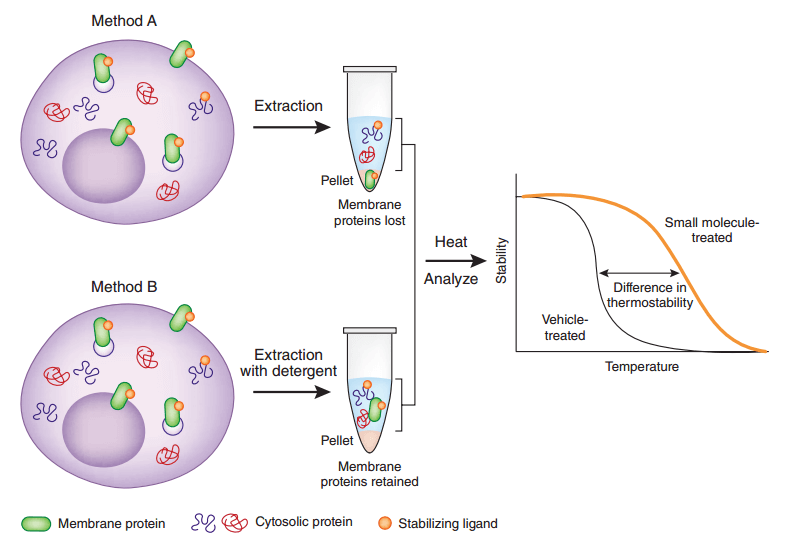Thermal Shift Assay
Creative Biolabs has established a comprehensive thermal shift assay platform with years of experiences in drug discovery. Our scientists are confident in providing high-quality thermal shift assay services of fragment-based screening or any other tailored services of drug discovery.
A thermal shift assay is also known as differential scanning calorimetry refers to quantifying the variation in thermal denaturation temperature of protein in different surroundings. A variety of conditions enable to be determined, such as drugs, drug leads, mutations, salts, pH, and oxidation/reduction. Proteins are the pivotal target molecules researched during the drug progress process; a crucial part here is the high throughput screening of small molecules and ligand libraries which combine to protein targets. Protein thermal shift assay, one approach of protein melt assays, enables to be applied as an effective screening method for determining protein thermal stability, measuring appropriate buffer conditions, and identifying protein-ligand interactions. Besides, thermal shift assay is able to be applied to hit identification and target engagement of drug candidates.
 Fig.1 The thermal shift in the denaturation temperature of soluble proteins bound to small-molecule ligands.1
Fig.1 The thermal shift in the denaturation temperature of soluble proteins bound to small-molecule ligands.1
Fragment-Based Screening
Typically, thermal shift assay is extensively used for the fragment-based screening of compound libraries. This approach is on account of the energetic coupling between protein unfolding and ligand binding, it can investigate the thermal stability of proteins and study buffer conditions, ligands and drugs influencing the stability. Differential static light scattering method (DSLS) and differential scanning fluorimetry (DSF) method are effective for detecting protein denaturation and typically used in the thermal shift assay. Creative Biolabs can provide thermal shift assay services with the ability of high throughput analysis utilizing extremely small sample quantities to determine the interaction between ligands and fragments.
Target Engagement
The target engagement of drug candidates can be studied by thermal shift assay, a method representing the fulfillment of thermal shift assays in a cellular format. It is on account of the biophysical mechanism of ligand-induced thermal stabilization of target proteins and applied to monitor and quantify the extent to which a drug candidate directly combines with a protein target of interest. Creative Biolabs offers high-efficiency measurement services for you to detect fragments or compounds binding for a series of essential clinical targets.
Advantages of Thermal Shift Assay
There are several advantages of thermal shift assay, for example, it can manage a number of samples containing a small amount of protein at the same time, and the processing of data is simple. In addition, binding of ligands is able to be measured with fast scanning rates by thermal shift assay, which might be better choice for high throughput screening plans when thousands of molecules must be tested.
Creative Biolabs provides other various drug discovery services. For more detailed information, please feel free to contact us or directly sent us an inquiry.
References
- Andreotti, Giuseppina, Maria Monticelli, and Maria Vittoria Cubellis. "Looking for protein stabilizing drugs with thermal shift assay." Drug testing and analysis 7.9 (2015): 831-834. Distributed under Open Access license CC BY 4.0, without modification.
For Research Use Only.
